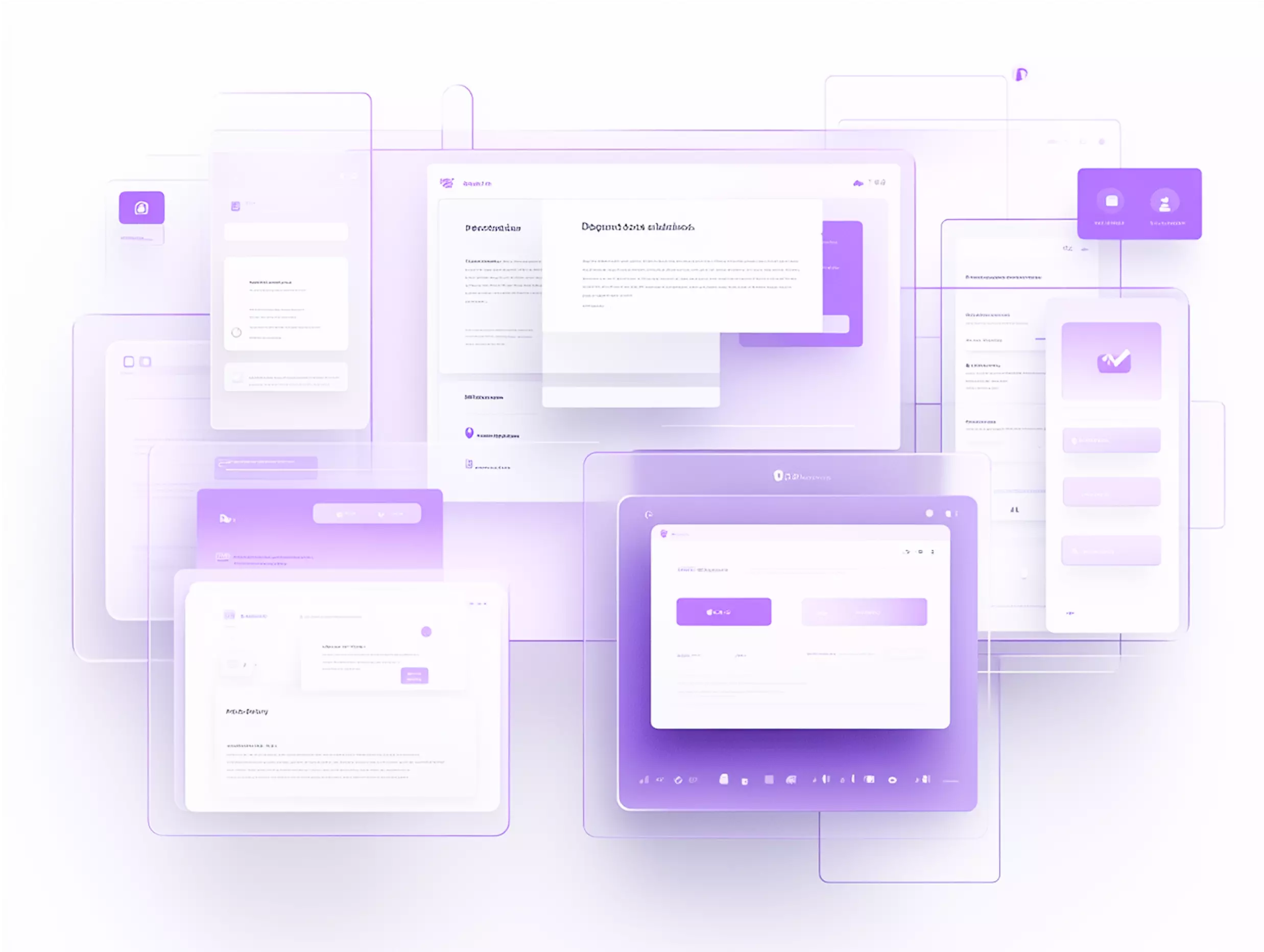Unlock the Power of PDFs with Chatbot Integration
Turn any PDF into an intelligent assistant. Get clarity, summaries, and search without lifting a finger or flipping a page.


Unlock the Power of PDFs with Chatbot Integration
Turn any PDF into an intelligent assistant. Get clarity, summaries, and search without lifting a finger or flipping a page.
How to create a chatbot with a PDF Document?
Sign up for free
Go to Kaily and click on the “Sign Up” button. Provide your name, email, and a password, or sign up with your Google or Apple ID instantly.
Customize your chatbot
Once you have your account ready, set up the chatbot with your own company branding. Name it, colour it, tone it, and give it personality that embodies your business.
Add data sources
Click “Add Data Sources” to upload files, connect to databases, or link to websites. You can also utilize the automatic updates to maintain responses up-to-date and accurate.
Test and deploy
Train and test your chatbot using your own questions. When you are happy with the result, bring it into your website or internal tools today.


What is a chatbot for a PDF document?
A PDF document chatbot is an AI that can engage in conversation with your PDF files. Instead of having to type through long documents or search online, users can ask questions, and the chatbot gives precise, relevant answers from within the content. It reads the structure of the PDF, such as headings, tables, and sections.
Then summarizes, refers to, or explains the complex information. Perfect for all sectors, this chatbot changes static PDFs into live, searchable knowledge, saving time, increasing productivity, and bringing information to life for anyone from students to legal, HR, or research teams.
Why is there a need for a chatbot with a PDF Document?
Let the chatbot do the heavy lifting—summarize key points, search by topic, and get answers backed by page references in seconds.
PDFs are hard to navigate
Long documents are filled with complex sections, making it difficult to find specific information quickly.
Manual search is frustrating & limited
Using keyword search (Ctrl+F) often misses context or skips over relevant information phrased differently.
Important information gets buried
Critical data, clauses, or insights can be lost in hundreds of pages, leading to missed details and costly errors.
Users want self-access to knowledge
Whether it’s employees, clients, or students, everyone prefers asking a question over digging through documents.


Who needs a chatbot with a PDF document?
Lengthy PDF documents are a headache for all of us. However, with Kaily chatbot for PDF documents, you can have your own chatbot to find and give instant answers from your files. If you are any one of the following individuals, the chatbot is worth using:
- Students & researchers
- Lawyers & legal teams
- HR professionals
- Doctors & medical staff
- Finance & audit teams
- Business consultants
- Customer support teams
Stop going back and forth with your PDFs. Get a chatbot from Kaily to get instant answers, summaries, and analysis of your PDF contents.
Key features & benefits of Kaily chatbot with a PDF document
Upload your PDFs and unlock the power of conversational AI. Whether it's legal contracts, research papers, or company reports, get summaries, explanations, and insights with a simple question.
Boosts Productivity Across Teams
From legal to HR to research teams, everyone gets the information they need faster, reducing back-and-forth and unnecessary delays.
Ask Questions in Natural Language
No technical commands needed, just type your question, and get answers instantly from your PDF as if you’re chatting with a human.
Page-Referenced Answers
Every response includes the exact page and section it came from, so you can verify facts and explore deeper if needed.
Multi-PDF Support
Upload multiple documents at once. The chatbot scans across them all to provide the most relevant answer, no matter where it’s located.
Kaily PDF chatbot use cases across industries
Education & Academia
Enable students and researchers to interact with textbooks, research papers, and study guides by asking questions instead of reading end-to-end.
Legal & Compliance
Quickly search through contracts, case files, and legal policies. Extract clauses, obligations, or legal precedents without manual review.
Human Resources
Help employees get instant answers from policy handbooks, onboarding guides, or compliance documents—without sending emails to HR.
Corporate Strategy & Consulting
Extract insights from business reports, market research, and internal documentation to support faster analysis and client deliverables.
Engineering & Technical Teams
Navigate technical manuals, product specs, and process documentation with ease. Ask questions to understand functionality, measurements, or procedures.
Customer Support & Product Teams
Turn user manuals, warranty PDFs, and product documentation into chat-ready formats so customers and agents can resolve issues faster.


Tips to build a chatbot with PDF Document
Building a chatbot for PDF document is a simple 4-step process on the Kaily platform. However, you should keep the following points in mind to make a chatbot with features that are relevant to your use case:
- Use readable, text-based PDFs
- Organize documents by topic
- Enable page-level citation
- Support queries in natural language
- Add multiple document support
- Ensure secure data handling
- Keep your information sources fresh
- Test with real user questions
These features will make your chatbot smarter and better for your purpose.


The future of AI agents for PDF Document
There is a really great future for AI agents in PDFs. Modern AI agents often have trouble with deep understanding, entering a specific format, or specifying multiple documents correctly. Many are still missing nuance or context, especially in technical or legal documents. But as AI language models advance, next-gen PDF AI agents may do a better job of accurately, contextually, and structurally understanding tables, citations, and document structure.
We will get more multi-document support, deeper semantic search functionality, and seamless integration into enterprise applications. These improvements will transform static documents into smart, interactive experiences, delivering faster and more dependable access to information to users across all industry verticals. The gap is closing quickly.
Frequently Asked Questions
You can reach out to us for queries via [email protected]
or to share feedback, contact us
Q. How does the Kaily PDF chatbot work?
A. You add one or more PDF files, and the chatbot immediately knows how to answer your questions by analysing their content.
Q. What types of PDFs can I use?
A. You can upload any PDF that you can read like contracts, research papers, reports, manuals, policy documents, and so on.
Q. Can it process more than one PDF at a time?
A. Yes, the chatbot can read more than one PDF and answer questions extracted from any of them.
Q. Does it indicate where the answer is derived from?
A. Yes, each answer has a page number or a section number adjacent to it, so you can look it up right away.
Q. Is my data secure?
A. Absolutely. Your documents are also encrypted, and you can opt to delete them at the end of the session..
Q. Who can use this chatbot?
A. The chatbot for PDF documents is great for professionals working in law, education, healthcare, HR, finance, and customer support. Basically, it is for anyone who works with lengthy, complex, and sensitive PDFs.




